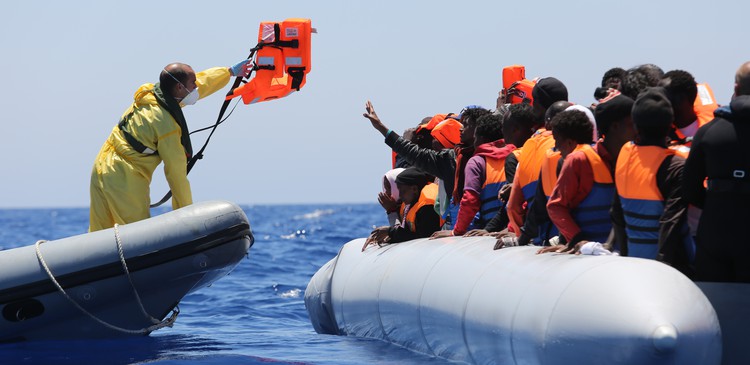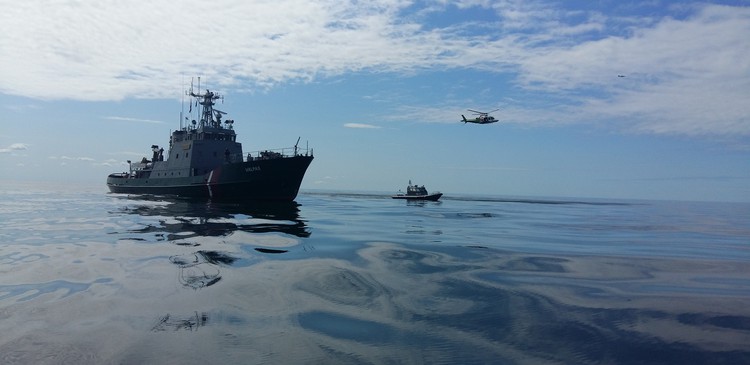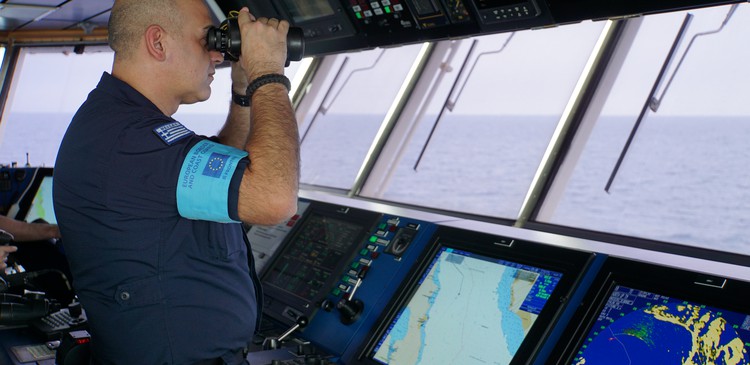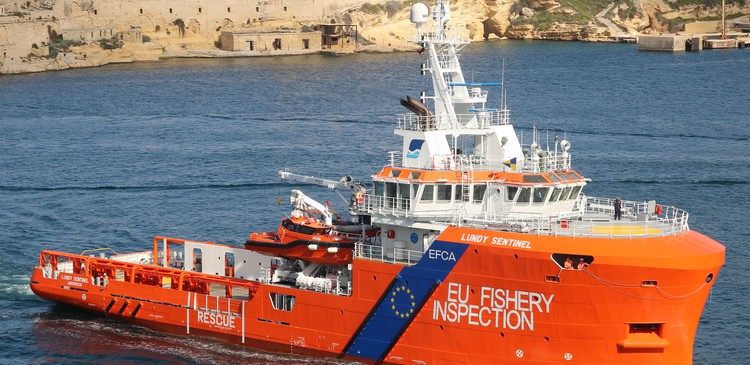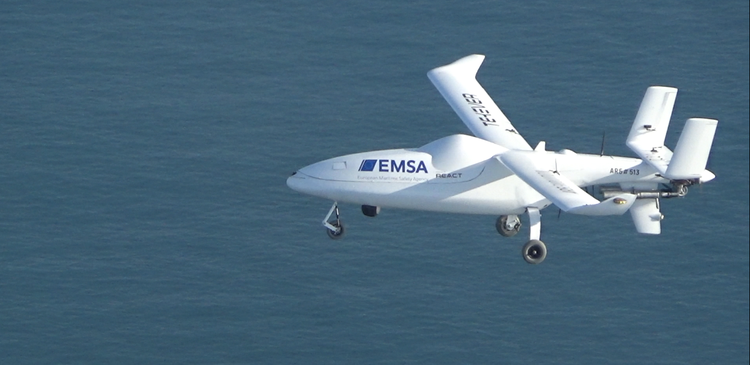European cooperation on coast guard functions describes the joint work of European agencies and national authorities at maritime borders. Coast guard functions comprise tasks related to safety and security at sea, such as search and rescue, border control, fisheries control, customs activities, law enforcement and environmental protection.
Operations
Agencies involved in coast guard functions at European level
Three European agencies support the national authorities in performing their coast guard tasks:
- The European Border and Coast Guard Agency (Frontex), based in Warsaw, Poland
- The European Fisheries Control Agency (EFCA), based in Vigo, Spain
- The European Maritime Safety Agency (EMSA), based in Lisbon, Portugal
Why we cooperate
The waters surrounding Europe are a busy place, accommodating a wide range of activities such as international and domestic freight and passenger transport, fishing, oil and gas production, as well as tourism and recreational activities. At the same time the maritime domain is exposed to a number of risks – accidents, marine pollution, illegal fishing, terrorism, piracy, people smuggling and other cross-border crimes.
In the European Union, there are numerous authorities responsible for different coast guard functions. More than 400 civilian and military authorities in the Member States work together around the clock to ensure that the activities taking place at sea are lawful, safe, secure and environmentally sustainable.
Frontex, EFCA and EMSA support Member States with information sharing, surveillance and communication services, capacity building activities as well as risk analysis and information exchange on threats in the maritime domain.
The three agencies work in multipurpose operations, where they together perform activities that support various coast guard functions in the same operation. Vessels and aircrafts taking part in Frontex operations also collect and share information relevant to fisheries control, detection of pollution and compliance with maritime regulations with by the respective national authorities and agencies. Similarly, the remotely piloted aircraft services deployed by EMSA can be used by Frontex for border surveillance, by EFCA for fishery control and by individual authorities in their respective areas of competence.
European cooperation on coast guard functions explained
Each European agency supports the European cooperation on coast guard functions with different objectives and responsibilities.
Frontex aims at improving the management of the external borders in order to ensure a high level of internal security in the EU and to tackle cross-border crime.
EFCA focuses on operational coordination of fisheries control and inspection activities contributing to a level playing field for the fishing industry and ultimately to sustainable fisheries.
EMSA focuses on enhancing maritime safety, security and prevention of ship-source pollution. It also supports response operations to marine pollution caused by ships and by oil and gas installations.
Legal framework
Frontex, EFCA and EMSA have been working together for many years. In 2016, their cooperation was formalised with a legislative proposal by the European Commission leading to the amendment of the three agencies’ founding regulations. In 2017, the three EU agencies took a significant step in structuring their cooperation on coast guard functions by signing a Tripartite Working Arrangement for a duration of four years.
The cooperation between the three EU agencies is managed by a Steering Committee composed of their Executive Directors. At working level, three technical subcommittees meet regularly to discuss various areas of cooperation. EU Member States are consulted and involved in the discussions during the Annual EU Coast Guard Event and other thematic meetings.
The technical subcommittees focus on surveillance and communication services, capacity building, risk assessment and capacity sharing.
On 18 March 2021, the three European agencies further strengthened the European cooperation on coast guard functions, as the Directors of Frontex, EMSA and EFCA renewed the Tripartite Working Arrangement, this time for an indefinite period.
This document allows cooperation between the three agencies to enhance the support provided to national authorities carrying out coast guard functions in sharing maritime information in compliance with fundamental rights, providing new surveillance and communication services, building capacity, analysing operational challenges and emerging risks in the maritime domain as well as by developing multipurpose maritime operations.
Working arrangement between Frontex, EFCA and EMSA available here.
